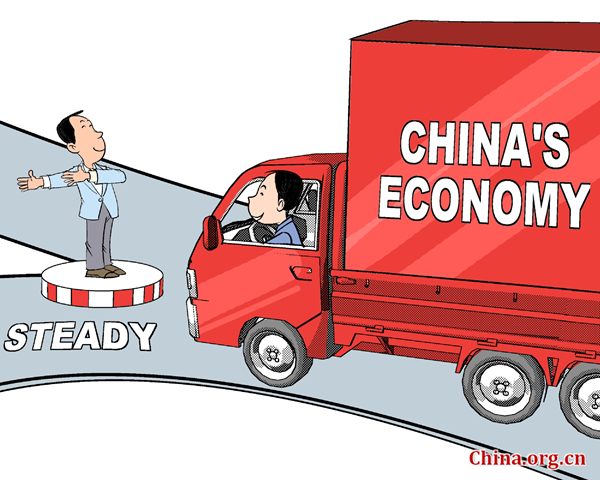How will China's 'Belt and Road' initiatives develop?
- By Tim Collard
 0 Comment(s)
0 Comment(s) Print
Print E-mail China.org.cn, June 5, 2015
E-mail China.org.cn, June 5, 2015
|
|
|
The right way [By Jiao Haiyang/China.org.cn] |
China's recently launched regional development finance initiative, centered on the establishment of the Asia Infrastructure Investment Bank (AIIB) and the two great infrastructure initiatives known as the "Belt and Road," is principally aimed at building new trading and financial links with the world outside China's borders, and integrating the regional economies. What is new about this project is not just the colossal scale of what it aims to achieve, but also the establishment of a new model, not simply taking its content and structure from existing operating patterns, but bringing in an entirely new concept: international development with Chinese characteristics.
The history of China's trade with the outside world is well known; it has largely consisted of the outside world's attempts to impose its own conditions on China, whereas imperial China only had a moderate interest in overseas trade in the first place. The original Silk Road largely owed its existence to the Western desire to source luxury products, rather than to active attempts by the Eastern world to expand into new markets. But the "Belt and Road" initiatives change all that.
The concept does not have to be built from scratch, however. Over the last ten years a lot of solid work has already been done under the umbrella of the Shanghai Cooperation Organization to facilitate transport and border trade involving the new Central Asian countries emerging from the break-up of the Soviet Union; some of these projects can now serve as bricks in the wall of the wider new initiatives, and the confidence-building effects of the SCO will also help in creating a cooperative environment. In their capacity as AIIB members, China's SCO partners will now qualify for heavy investments in power generation, the building and improvement of manufacturing plants, and energy pipelines; this will in turn help China to secure and diversify its gas supplies. The goodwill of Russia is also essential to the large-scale infrastructure projects, and the current tensions with the West will incline Russia to look to China for friendly cooperation.
The practical needs of China's immediate neighbors also fit in well with the current circumstances of the Chinese economy. A recent decline in China's domestic construction industry, leaving China with a large steel surplus, can now be balanced out by the needs of its neighbors. This means that China has the necessary capital, expertise and material capacity to reverse the infrastructure deficits of many of her neighbors, along with a financial structure geared to the delivery of such projects.







Go to Forum >>0 Comment(s)